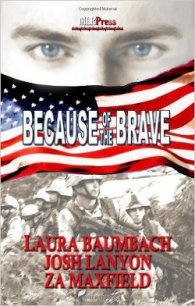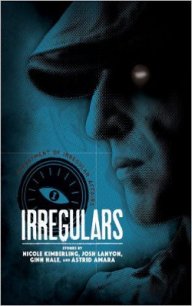Death of a Pirate King - lanyon Josh (читаем книги онлайн бесплатно .TXT) 📗
“You sound like Lisa,” Natalie said, quite unforgivably.
I gave her a long look. “I do not want this cat,” I said. “No, Nat. Not in a hat. Not in my flat. Not in the store, not any more, just out the door -- if you please.”
I thought that was pretty good for off-the-cuff, but she was unimpressed. “He’ll die out there!”
“Or you’ll die in here. Take your pick.” At her expression, I sighed. “Honest to God, Natalie. I don’t -- I can’t take on the responsibility for a pet right now. And if I was in the market for a pet, it would be a dog.”
A big dog. That ate cats for lunch.
Apparently Natalie’s case of selective deafness had grown worse while I’d been out. As though I hadn’t said a word, she said, “And I’ll watch him during the day while you’re working this case.”
“I’m not --” I amended, “I don’t know that I’m going to do any more sleuthing. It’s taking up a lot of time I don’t have.” I hoped that wasn’t as portentous as it sounded.
Even before Dr. Cardigan had advised me to take things easy for the next week or so before my surgery, I’d decided that it wouldn’t be a good idea for me to keep poking around in Porter Jones’s death. Not because it was dangerous -- it hadn’t been so far -- and certainly not because of Jake. No, it was after leaving Paul Kane’s boat the evening before. It bothered me the way Kane had manipulated me -- and Jake -- for his own amusement. At least, I couldn’t see any other reason for his behavior the evening before. And it made me uneasy. I already didn’t like him, and now I didn’t trust him.
True, that left me squarely in Detective Alonzo’s sights as a murder suspect, but it sounded to me like Jake was guiding the investigation toward Ally Beaton-Jones.
Natalie was eyeing me curiously. I said lamely, “Besides, Guy is allergic to cats.”
She didn’t say it, but I could see what she was thinking: that Guy -- at least as far as she knew -- hadn’t been around since last Thursday. Hadn’t even called.
I missed Guy. I missed him a lot right now.
“Feed him a can of tuna and put him outside,” I said. “He’s an alley cat. He’ll survive.”
“He might not! He’s just a few months old!” She was getting angry now, and -- oddly enough -- I was getting angry too.
“Then you take him home.”
“You know Lisa won’t allow animals in the house.”
What the hell was a healthy, twenty-something-year-old woman doing living with her parents anyway?
“Then call the pound. I don’t care. It’s not my cat, and this is not my problem.”
She stared at me like I’d morphed into something that belonged in a Playstation. Even the cat seemed to be staring at me with those E.T. eyes.
I tried to bring it down a notch. “Natalie,” I said placatingly, “Have a heart. I can’t deal with this right now. You can understand that, can’t you?”
She was still not speaking to me when I left to take Emma to her riding lessons.
* * * * *
While I was watching Emma go through her paces, Jake called and left a message on my cell phone. I didn’t discover it until I was back at the bookstore.
His recorded voice sounded terse and self-conscious.
“It’s possible you’re onto something with Nina Hawthorne. It turns out she was at Paul’s the morning of the party. There’s still no indication of how she might have introduced poison into the cocktail mixture, but it might be worth talking to her.”
Why tell me? He was the police. It was his job to check this stuff out. If I didn’t know better, I’d say he was using this development with Nina as an excuse for contacting me. Was he -- like Paul -- worried I might pull out of the investigation? He didn’t agree with any of my theories so far, so why the hell would he care? Wouldn’t it be easier, really?
Or was I the only one struggling with old feelings?
I listened to the message again, started to dial Jake, and then stopped myself. There was nothing to discuss. Not really. If I called him it would be because I wanted to talk to him, and that way lay madness.
I opened a can of Wolfgang Puck’s tortilla soup and made myself eat it, browsing through a stack of books that had arrived that morning from publishers. I’d been looking forward to Richard Stevenson’s new one for months. There were enticing offerings from favorites P.A. Brown, Neil Plakcy, and Anthony Bidulka -- and a promising first book by new author Scott Sherman (although if I had to read one more mystery about a hustler turning detective, I was going to shoot myself). I flipped pages and listened absently to the sounds of the street settling down for the evening outside my window.
Rising, I went to turn on the stereo and listened to the opening notes of Snow Patrol’s “You’re All I Have” from Eyes Open.
I tried not to think. I especially tried not to think about Guy.
I could call him, of course. If I called him and said I was ill and needed him, he’d be here in a minute.
But that would be the wrong reason to call. And the wrong reason for him to come back.
I remembered that I had bought Paul Kane’s unauthorized biography, and I went downstairs to retrieve it. For a moment I stood in the silent gloom of the store, staring through the plastic dividing wall.
Nothing to see but ladders and scaffolding. A couple of drop cloths. A generator sat to one side beside a pile of broken plaster. There were coils of wire, cans of paint. Nothing sinister lurked there. I was just getting jumpy in my old age.
I retrieved my book and returned upstairs.
The book was called Glorious Thing, a nod to Paul Kane’s role as the pirate king in the fantasy flick The Last Corsair. This was the film that had made Paul Kane a star -- maybe a minor star as Hollywood galaxies went, but a star nonetheless. I’d seen the film a couple of times, and I had very much appreciated Kane’s acting -- along with other things. Well, what was there to object to in watching a beautiful male animal run around half-naked for two and a half hours? Even if the dialogue did consist of creaking lines like, “I swear by all that is holy, I will have my revenge!” and “What kind of demon are you?” (That last was supposed to be a rhetorical question, but had anyone asked me, I’d have been happy to explain that there was, in fact, a fairly complex demon hierarchy.)
I wasn’t far into the book before I sussed that the author, Bonnie Kirkland, was not a member of Paul Kane’s fan club. It was hard to put my finger on what it was. For the most part she seemed to be sticking to facts -- everything seemed properly attributed and footnoted. And, if anything, Kane’s background was one that should have generated sympathy. Born Humphrey Horfield in Bristol, England, he was orphaned at an early age and placed in institutional care. He ran away when he was fifteen to become an actor. He changed his name and supported himself as a rent boy on the streets of London. Talent, his extraordinary good looks, and luck won him a number of small roles in theater productions, but his big break came in 1980 when he won something called the SWET Award for Best Newcomer for his role as Phineas in A Separate Peace.
He played the role again in a film version, and then moved to the States where he landed a number of increasingly large parts in movies -- some bad, some good, but all seeming to move his career forward. But the most significant thing during that period was the friendship he formed with wealthy entrepreneur Langley Hawthorne, who had recently put together his own film production company, Associated Talent.
Hawthorne thought Kane was going to be this generation’s Cary Grant, and he had invested considerably in him. But it was more than a business investment. Hawthorne had befriended Kane -- practically made him one of the family. Without actually saying so, Bonnie Kirkland managed to convey that she thought this was a mistake on Hawthorne’s part, and that Kane was a charming and manipulative user.




